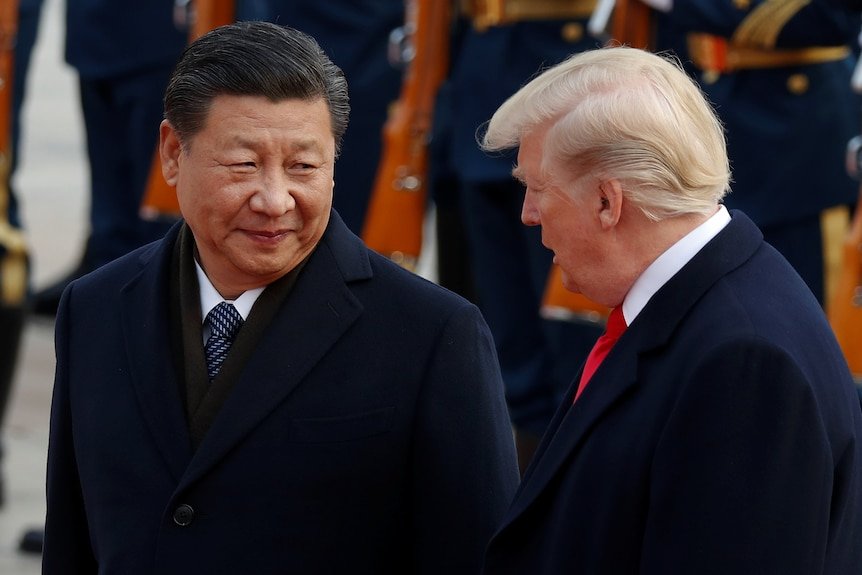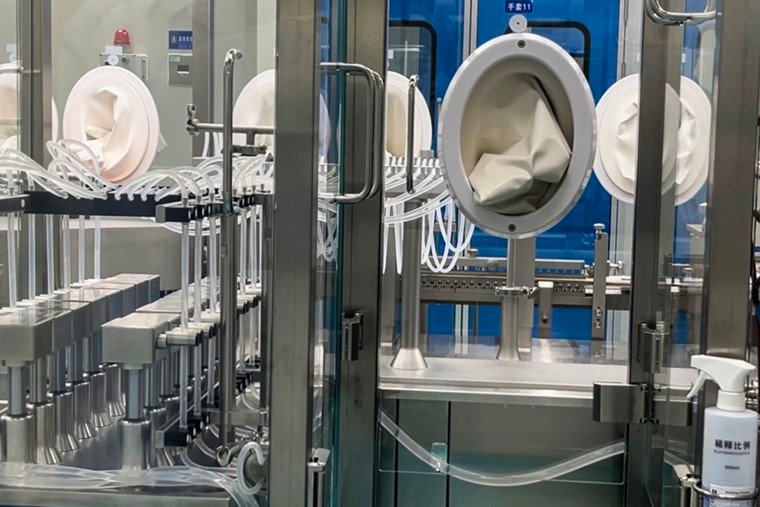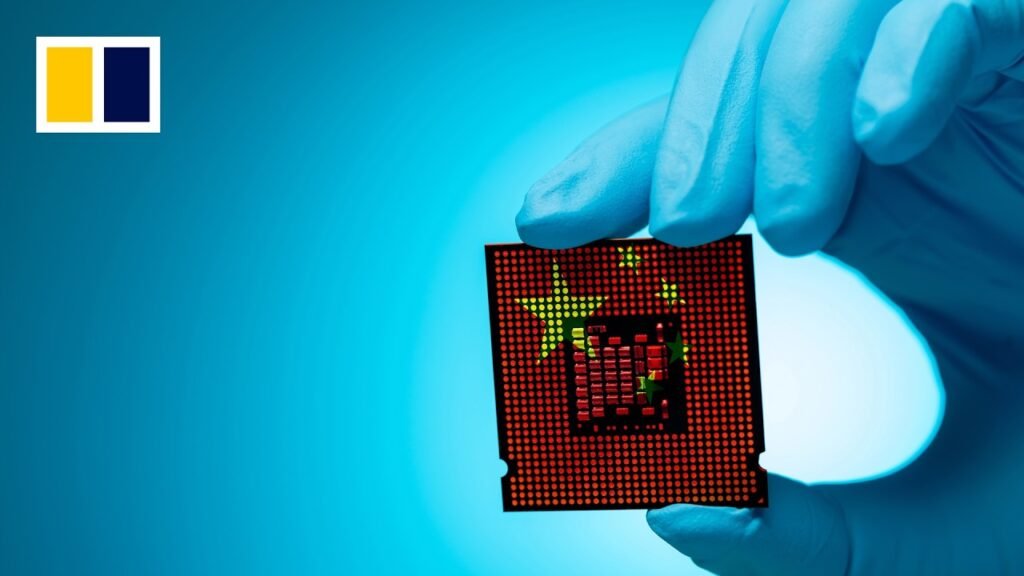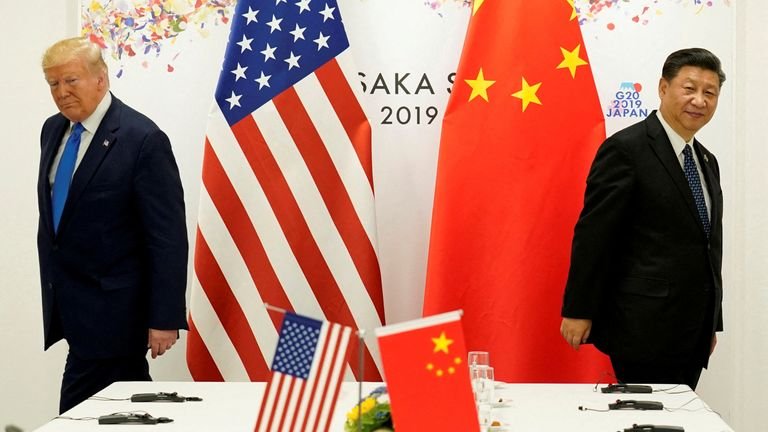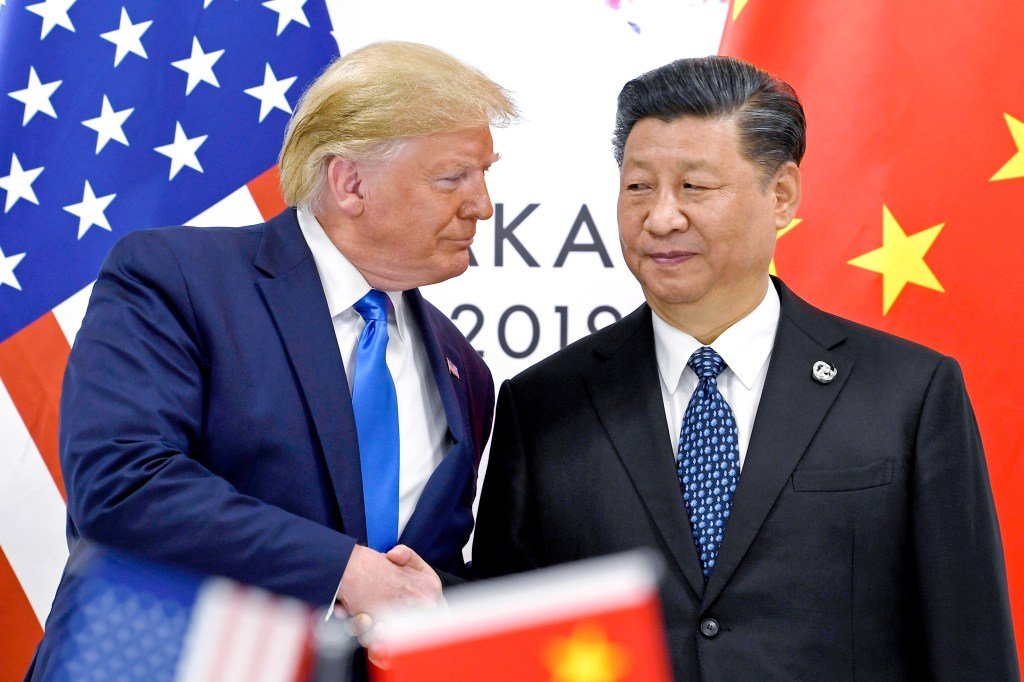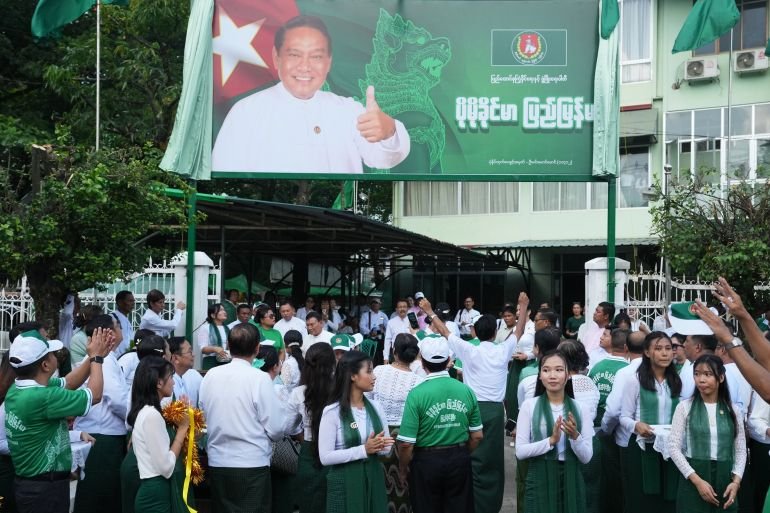(Bloomberg) — Nvidia Corp.’s shares extended their dramatic ascent to a record after US President Donald Trump said he’ll discuss the chipmaker’s Blackwell artificial intelligence processors with Chinese leader Xi Jinping, making the company the first $5 trillion business by market value.
Most Read from Bloomberg
“We’ll be speaking about Blackwells,” Trump said Wednesday, ahead of his highly anticipated meeting with Xi later this week. He touted the chip as “super duper” and said Nvidia Chief Executive Officer Jensen Huang recently brought a version of the accelerator to the Oval Office.
Trump said months ago he’d consider allowing Nvidia to export to China a downgraded version of its Blackwell processor. That would mark a major win for the world’s biggest company by market value, a significant concession to Beijing, and an upheaval of Washington’s yearslong campaign to curtail China’s prowess in artificial intelligence. The president’s comments fueled investor hopes that such a deal might be on the table this week, as Trump looks to strike a sweeping accord with Beijing and ratchet down weeks of escalating trade tensions between the world’s two largest economies.
Nvidia’s shares extended gains to as much as 5.3% to $211.63 after markets opened in New York on Wednesday, becoming the first stock to top $5 trillion in value. Nvidia now accounts for nearly one-tenth of the market cap of the entire S&P 500 Index and exceeds the gross domestic product of entire nations, including India, Japan and Germany. If it were a country, the company would easily rank among the world’s top 10 economies.
Trump’s comments added momentum to the shares, already on a tear after flurry of developments that underscored growing optimism around the global AI infrastructure boom. Those included earnings that exceeded even lofty expectations, Nvidia’s own bullish outlook for chip demand and a spate of deals the company announced during a high-profile conference in Washington this week.
But perhaps most crucial to investors is whether Nvidia gains increased access to China, the world’s largest market for its products and an increasingly sophisticated developer of chips and AI in its own right.
Nvidia has faced an effective ban on selling its best AI hardware to customers in the Asian country since 2022, restrictions imposed over fears that those semiconductors could lend Beijing a military edge.
Huang has said those rules, which US policymakers ratcheted up several times, have driven Nvidia’s market share in China from a 95% peak to zero. The tech chief is among the most vocal opponents of the measures, which he argues have fueled the rise of China’s own chipmaking capabilities, exemplified by the likes of Huawei Technologies Co.
There’s also a lot of money at stake for a company that’s already benefitted more than anyone from runaway spending on AI computing.
Earlier this year, Nvidia wrote down billions in anticipated revenue after the Trump administration imposed restrictions on sales of its less-advanced H20 processor, designed specifically for the China market.
Mere months later, Trump agreed to issue permits for Nvidia to ship H20 chips to China in exchange for a 15% cut of the revenue — an arrangement that fueled widespread alarm from China hawks in and outside of his administration. But those H20 sales haven’t actually happened. Beijing has discouraged Chinese companies from using the accelerators, part of a long-running effort to boost the homegrown ecosystem.
“The president has licensed us to ship to China, but China has blocked us from being able to ship to China,” Huang told reporters at this week’s company event in Washington. “They’ve made it very clear that they don’t want Nvidia to be there right now.”
Chinese companies, however, still covet the company’s processors and rely on Nvidia’s broader software ecosystem. Access to even better hardware from the Blackwell lineup — now the industrial standard used by the likes of Meta Platforms Inc. and OpenAI — would be a significant boon to the Asian country’s AI ecosystem.
A major question, though, is how that jives with Beijing’s priorities. At the Chinese Communist Party’s Central Committee meeting last week, leaders pressed for greater self-reliance in advanced technology, especially in the areas of semiconductors and artificial intelligence.
Both Trump and Huang have suggested they will also see each other in Asia this week, though it’s unclear when, and uncertain whether, such a meeting may occur.
“Jensen, who’s an incredible guy, might be here,” Trump said at the Asia-Pacific Economic Cooperation forum in South Korea. “Somebody said he’s here.”
–With assistance from Debby Wu, Justin Sink and Subrat Patnaik.
(Updates with additional context in the fourth paragraph.)
Most Read from Bloomberg Businessweek
©2025 Bloomberg L.P.

